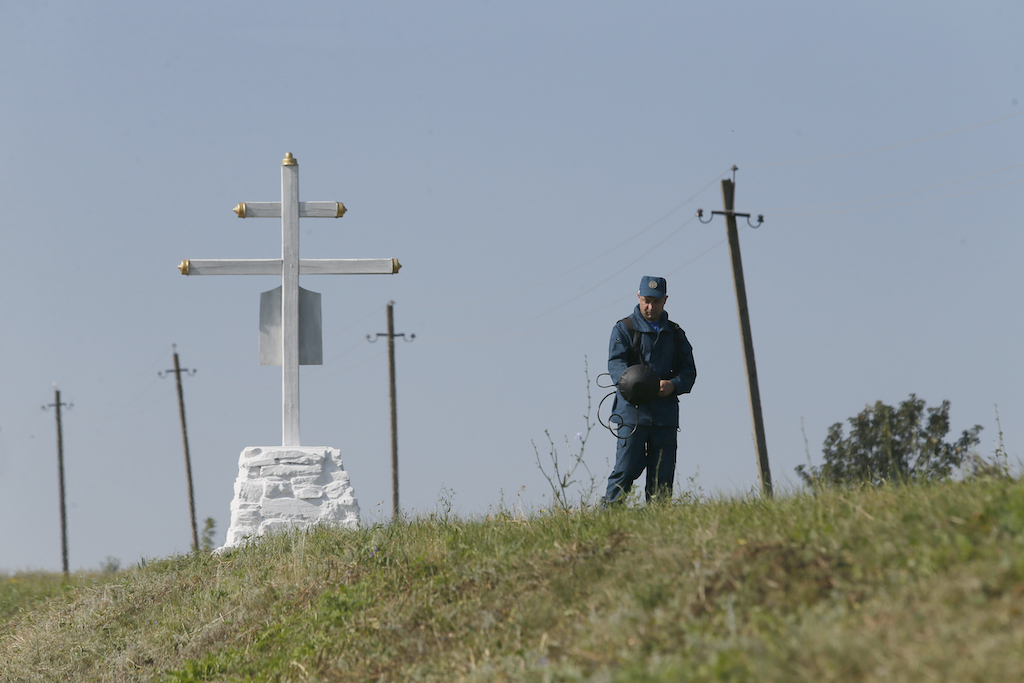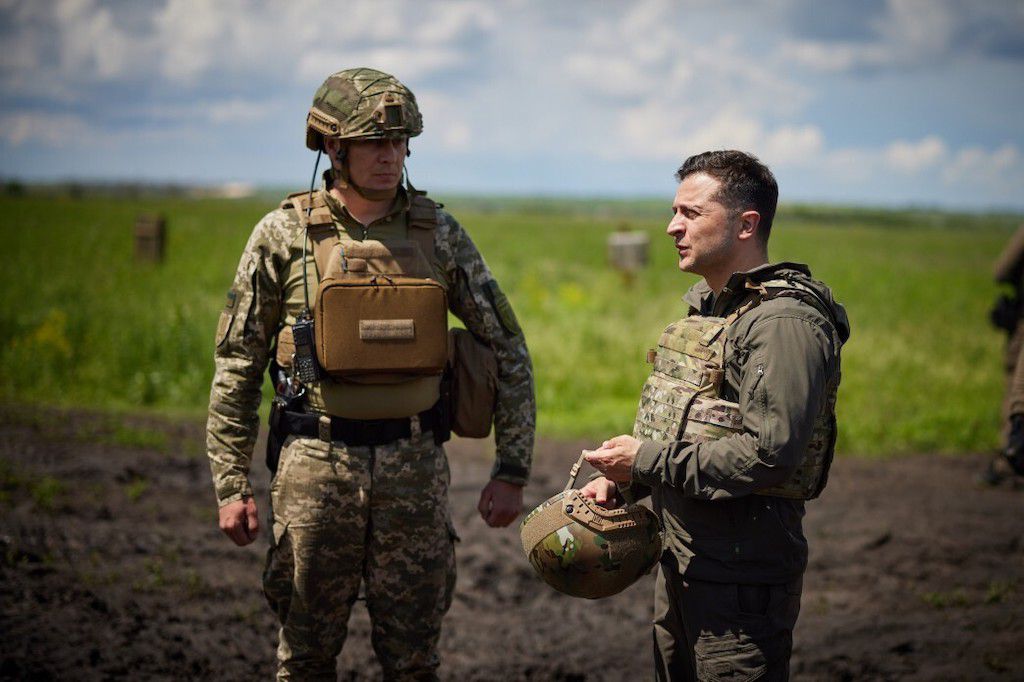The costs of annexing Crimea keep rising for Russia
While Russia might have gotten away with seizing Crimea, its support for the armed insurrection in the eastern part of Ukraine turned out to be a deal-breaker instead of a bargaining chip. This miscalculation will haunt the Kremlin for the foreseeable future.

In a nutshell
- The annexation of Crimea is not a triumph for Russia
- Moscow is no closer to seeing its actions accepted internationally than it was in 2014
- The cost-benefit balance of Russia’s policy keeps worsening
When Russia mounted its rapid operation to seize and subsequently annex Crimea, it met with mixed reactions. The domestic response was near-universal elation, catapulting President Vladimir Putin’s approval ratings to levels no Western leader could dream of. In contrast, the international response was marked by broad condemnation, including adverse reactions from governments otherwise friendly to Russia.
The annexation was unique because the “little green men” (clandestine Russian soldiers) carried out their mission with very few shots fired in anger. This eventually caused many Western observers to voice grudging respect. If the Crimean operation had remained an isolated event, then the Kremlin might have been proven right in assuming that, given some time, the land grab’s gains would outweigh the costs.
Moscow had good reason to believe that the Europeans would eventually come round to accepting a fait accompli. Both the German business lobby and key EU member states could be expected to resist prolonged sanctions. While hoping for acceptance de jure may have been a stretch, a tacit acceptance de facto could have gradually normalized trade and political relations.
A point of no return
Seven years later, the Kremlin is still waiting for that acceptance. It is hard to see any significant cracks in the Western facade at this point. The reason is as apparent as it is essential: while the Kremlin might have gotten away with seizing Crimea, its decision to support armed insurrection in the eastern part of Ukraine turned out to be a huge mistake. The consequences will haunt Russia far into the future.
President Putin has come to be viewed as guilty of lying and cheating on a grand scale.
The projected vision of an emerging Novorossiya (“New Russia”) in eastern Ukraine evoked heady memories of how the old Russian Empire once expanded into the Caucasus. But that was not to be. Once the lines of confrontation had stabilized, only fragments remained of the self-styled “people’s republics” of Luhansk and Donetsk.
The outcome has been a quagmire, a low-intensity war with no end in sight. A point of no return was marked with the downing, in July 2014, of Malaysia Airlines Flight MH17, killing all on board. Before that tragedy, the Kremlin might still have nourished some hope that the dust would eventually settle.
The core of the Kremlin’s current problem lies in the link it has established between the two events, the “neat” operation in Crimea and the dirty mess of the war in Donbas. While it had little problem coming clean on its forces’ involvement in the former, the question of whether regular Russian troops have been present in the latter has developed into a festering sore.
The discrepancy between official Russian denials and evidence from a multitude of sources has, over time, become overwhelming. President Putin has come to be viewed as guilty of lying and cheating on a grand scale. This, in turn, has caused significant damage to Russian relations, not only with the Western powers. And the Kremlin did not have too many allies to start with.
Russia’s limited capacity
When, in May 2019, Volodymyr Zelensky was elected president of Ukraine, he vowed to bring a speedy end to the war. That has not happened, and it was not realistic to begin with. Any lingering hopes that the Kremlin might be getting ready for a deal were quashed in April 2021, when the Russian army staged a large mobilization close to the Ukrainian border.

The massive troop movements led to worries about a pending full-scale invasion. Such fears were voiced many times before, and they still lack realism. Given the current state of Ukraine’s armed forces, their access to sophisticated American Javelin anti-tank missiles, and the likelihood of intensive partisan warfare behind the lines, a full-scale invasion would require the commitment of half of all Russian armed forces. That is not going to happen.
A more likely explanation of the April mobilization is that it was part of a series of drills undertaken across the country to test readiness at the end of the annual rotation of forces. What made Crimea stick out was the heavy commitment of elite airborne units, a move intended to emphasize that Crimea belongs to Russia.
The threat of the crucial naval base at Sevastopol falling into NATO’s hands has been avoided.
Taking stock of the Kremlin’s current situation, the balance sheet for Crimea features obvious costs and benefits. The main item on the plus side is that Russia will remain a major player in the Black Sea region. The threat of the crucial naval base at Sevastopol falling into NATO’s hands has been avoided, and the peninsula has been transformed into a fortress. In addition to upgrades of the airfields and naval installations, an array of radars and missiles have been fielded, providing what is known in military jargon as anti-access/area denial (A2/AD) capabilities.
Built-in tensions
The focus on force projection has led to confrontations with NATO warships, ranging from low passes by Russian fighter jets to close encounters with Russian navy warships. A recent incident occurred on June 23, when the British destroyer HMS Defender sailed from the Ukrainian port of Odessa toward Batumi in Georgia. The voyage occurred in an internationally recognized shipping lane that skirts the Crimean coastline.
Russia claims that the Defender acted provocatively by entering Russian territorial waters. The British maintain that the waters in question belong to Ukraine and that their vessel had not breached the 12-mile territorial limit in any case. A similar incident took place on the following day: the Dutch frigate HNLMS Evertsen was harassed in international waters, some 70 miles east of Crimea.
The main point in these confrontations is to strengthen the Russian narrative that Crimea belongs to Russia. Russia has even been caught hacking the transponders of NATO warships to purportedly show them operating inside what it claims as its territorial waters. Although such claims have been easily refuted with satellite imagery, the Kremlin keeps spinning its narrative. Despite the obvious dangers involved, it is not easy to envision a scenario defusing the situation.
On the debit side of the annexation balance sheet, two big items stand out. One is financial, relating to the implied costs. The other is reputational, measured in terms of damage to relations with a range of governments extending well beyond the Western powers.
Investments and subsidies
The direct cost of absorbing Crimea consists of the dual needs of infrastructure investment and providing budgetary support. The main item on the former count is the 18-kilometer road and rail bridge that spans the Kerch Strait. At an estimated cost of $3.7 billion, it links Crimea with the Russian mainland. Other expenses range from the four-lane Tavrida Highway and a significant upgrade of Simferopol International Airport to a new thermal power plant, a modernized power grid and (soon) universal mobile communications coverage.
The Kremlin has little hope that Crimea will make ends meet any time soon.
While these investments have driven a substantial increase in the region’s gross domestic product, sanctions hurt the local economy, necessitating budgetary support. The subsidies the Kremlin has been forced to put up have varied between $1 billion and $2.7 billion per year. Although these transfers alleviated the plight of the local population, increases in salaries and pensions have been eroded by inflation. The sanctions and a steep rise in freight costs add to the budgetary burden.
The Kremlin currently provides around 70 percent of the budget and has little hope that Crimea will make ends meet any time soon. Providing fresh water is a significant challenge. About 85 percent of the water Crimea needs – for agricultural irrigation and domestic use – was once supplied via the 400-km North Crimean Canal. Kiev’s decision to shut it down led to water shortages that will require substantial investment in costly desalination plants.
Scenarios
It might seem that the sheer size of these financial obligations should cause Moscow to reconsider the wisdom of annexing Crimea. But the real test of Russia’s ability to stick to its guns in Ukraine lies elsewhere, in the associated reputational damage.
The Kremlin’s main problem is that it lacks international recognition of an important part of its external border. Its attempts to resolve this problem have been uniformly unsuccessful. It has tried and failed to pitch its involvement in Donbas as a bargaining chip – offering support for a negotiated end to the war in return for recognition of its annexation of Crimea. Also, it may be argued that a good part of Moscow’s rationale for moving into Syria was to procure another bargaining chip for the same purpose.
However, the international community has been dead set against recognizing the Russian annexation. In part, this is due to a commitment to international law. But that commitment will have a practical limit. Given the size of the costs inflicted on all sides, one might have expected that some form of solution would be found – a de facto recognition camouflaged with some form of a diplomatic fig leaf. This has not happened and is not likely to happen soon because the issue has become so emotionally charged.
In the early days of the conflict, President Putin may have relished the boost in his domestic standing. Over time, his tough-guy image has become more and more of a liability. Playing fast and loose with the truth and making inflammatory statements about anti-Russian conspiracies has angered not only Western governments. No less importantly, it has caused governments that were previously counted as friendly to begin questioning if Mr. Putin can be trusted at all.
Kazakhstan is Russia’s key ally in Central Asia. Russians heavily populate its northern regions, and many Kazakhs have long been concerned that demands would emerge for the border to be moved. The Russian aggression against Ukraine has exacerbated such concerns, causing a rise in anti-Russian feeling. The case of China is even more alarming. Beijing, long insistent on noninterference in the internal affairs of other countries, considers Russian aggression against Ukraine a bad case of such interference and has taken a dim view of events in there. And China’s appetite for business and investment in Russia was weak to begin with.
When assessed against this backdrop, the annexation of Crimea does not measure as such a triumph for Russia. The gains from enhanced ability to project military force into the Black Sea region have been acquired at the cost of alienating critical friends and allies. Even if Russia is too big to be completely isolated, it will find shrinking markets for its arms sales and a tightening circle of friends to rely on in projecting influence in other parts of the world. And even if regrets may be emerging, it is indeed hard to see a way back any time soon.







